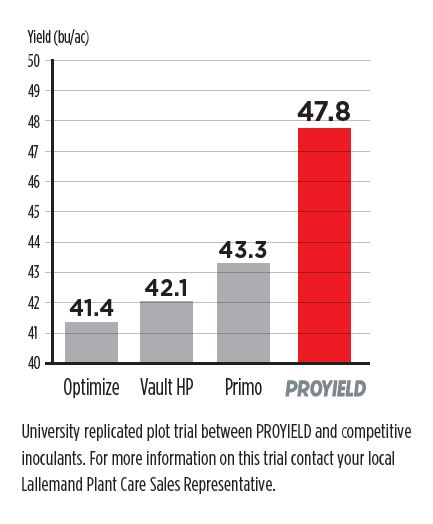The two strains of Bradyrhizobium elkanii deliver more nitrogen
fixation through utilization of the nitrogenase enzyme. The two strains provide
robust, early nodulation dispersed over the crown and lateral roots
compared to competitive inoculants.
The Delftia acidovorans quickly colonizes the root system,
solubilizing iron in the soybean rhizosphere and stimulating root and
root hair development, which helps the plant access more water and
nutrients throughout the growing season.
Additionally, recent partnerships with University researchers have concluded that Delftia produces a significant amount of chaperone molecules that help solubilize iron for soybean availability. This has shown out in fields with history of Iron Deficiency Chlorosis (IDC) to decrease symptoms caused by lack of iron as part of an overall offensive strategy against IDC.
The unique combination of these biologicals shows early vigor responses and subsequent nitrogen production. Later in the season treated soybeans hold onto their nodule activity so leaves stay green and remain photosynthetically active longer, producing more seed yield.
